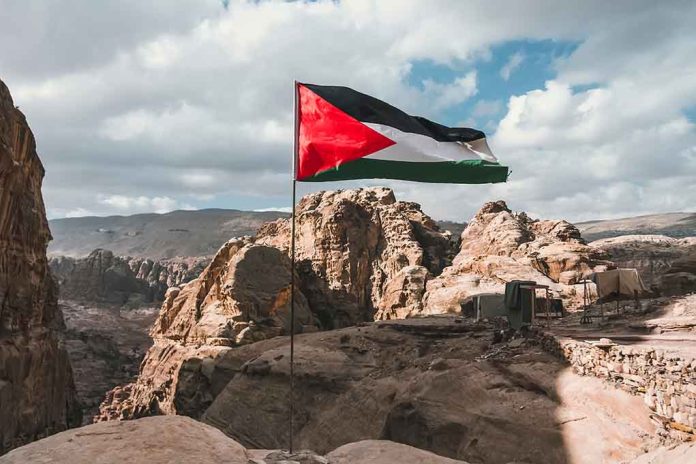
Palestinian Authority President Mahmoud Abbas lashed out at Hamas with unprecedented fury, calling them “sons of dogs” and demanding they disarm, release hostages, and cede control of Gaza to end the devastating conflict with Israel.
Top Takeaways
- Abbas delivered his harshest criticism of Hamas since the war began, using the derogatory term “sons of dogs” and demanding they release hostages and disarm
- The Palestinian president urged Hamas to transform into a political party and hand over Gaza’s control to the Palestinian Authority
- Hamas rejected Abbas’s comments and continues to refuse Israeli ceasefire demands that include disarmament
- This public confrontation highlights the deep division between the Palestinian Authority and Hamas that has prevented unified leadership
- Over 51,300 Palestinians have been killed in Gaza since the conflict began, according to the territory’s health ministry
Abbas’s Unprecedented Condemnation
Palestinian Authority President Mahmoud Abbas delivered his strongest rebuke of Hamas since the Israel-Gaza conflict began 18 months ago. During a televised speech, Abbas explicitly criticized the militant group that controls Gaza, urging them to “release the hostages and be done with it” to end Israel’s justification for continued military operations. His comments represent a dramatic shift in rhetoric from the Palestinian leader, who has largely remained sidelined throughout the conflict that has devastated Gaza and killed tens of thousands.
Abbas’s uncharacteristically blunt language shocked many observers. He referred to Hamas as “sons of dogs” while demanding they relinquish control of Gaza to the Palestinian Authority, disarm completely, and release all remaining Israeli hostages. The Palestinian president’s frustration appeared to stem from Hamas giving Israel what he described as “excuses” to continue its devastating military campaign against the Palestinian territory.
Palestinian president Mahmud Abbas called Hamas "son of bitches" and demanded them to release captives held in Gaza, calling it the main factor fuelling Israeli attacks on the territory, during a conference in Ramallah. pic.twitter.com/8WRy4WGkHe
— Middle East Eye (@MiddleEastEye) April 23, 2025
Hamas Rejects Disarmament Demands
Hamas promptly condemned Abbas’s remarks, with official Bassem Naim criticizing the Palestinian president for using “derogatory language” to “describe a significant and integral part of his own people.” The militant group has categorically rejected any ceasefire proposal that includes disarmament requirements. Hamas insists on a complete Israeli withdrawal from Gaza and refuses to give up its weapons, which it views as essential to its resistance against Israel. This position directly contradicts Abbas’s vision for a unified Palestinian leadership.
The conflict has created a humanitarian catastrophe in Gaza. Since early March, Israel has significantly restricted aid deliveries, leading to severe food and medicine shortages. The United Nations has warned of widespread malnutrition, while the Hamas-run health ministry reports that at least 1,928 Palestinians have been killed since the blockade began. Israel maintains it is acting in accordance with international law and claims that sufficient aid was delivered during a recent ceasefire.
Palestinian Leadership Divide
The public confrontation between Abbas and Hamas highlights the longstanding divide in Palestinian leadership. Hamas has controlled Gaza since 2007 after violently ousting Abbas’s Fatah party, while the Palestinian Authority only governs parts of the Israeli-occupied West Bank. This split has prevented a unified approach to Palestinian statehood efforts and complicated international diplomacy. Many Palestinians view Abbas as increasingly irrelevant, noting he has remained in power without elections and leads an authority criticized for corruption.
The Palestinian Authority president’s call for Hamas to transform into a political party represents his vision for reunifying Palestinian governance. Abbas wants a single authority controlling both Gaza and the West Bank, believing this would strengthen the Palestinian position in negotiations with Israel and the international community. However, Hamas’s continued refusal to disarm and the deepening humanitarian crisis in Gaza make such reconciliation increasingly unlikely as the conflict approaches its nineteenth month with over 51,300 Palestinian fatalities reported since October 2023.






















